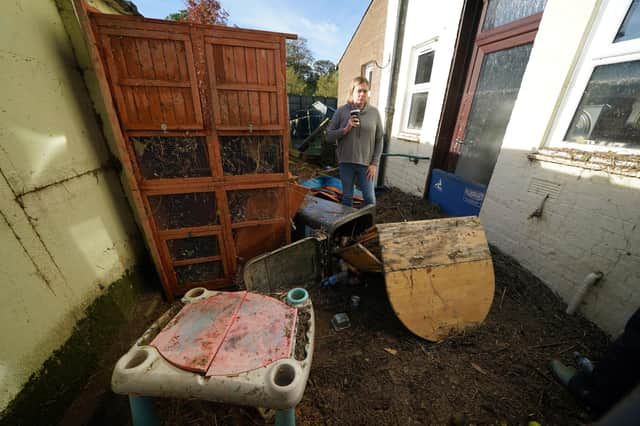Storm Babet underlines need for climate emergency relief fund - Alex Cole-Hamilton


This was on Saturday evening, at the end of our holiday and our crossing was the first to actually clear the docks without cancellation since Storm Babet had ripped up the North Sea in the days previous. The worst was already past but the ship still took a pummelling overnight. Trying to sleep in that must be like what it feels to sleep in a washing machine, yet still I count myself lucky.
The full cost of Storm Babet will be weeks in the counting. Parts of the east coast are still inundated and underwater, but tragically the destructive force of this weather event can already be measured out in human lives. At the time of writing three Scots had been killed by the colossal force of nature.
Advertisement
Hide AdAdvertisement
Hide AdStorm Babet broke several records, but ones that in many cases had only stood since last year. Our weather system is changing, that’s now certain. Autumn and early winter in Scotland can be characterised by something I have referred to before as “Scotland’s Monsoon”. It is empirical evidence of the impact of the climate emergency on our country.
A month’s worth of rain can fall in just a single day, storms that were previously a once in a century event now occur every other year, and all the while a sewage system designed for lives as they were lived a hundred years ago is failing to cope.
I have written before about the problem this is creating with our sewage network. Sewage overflowed into our rivers and beaches at least 14,000 times last year and we don’t even know the half of it. Why? Because the Scottish Government owned water company only monitor around 4 per cent of the places this happens. They say it’s necessary to dump our waste into our water courses because it’s either that, or have sewage inundate people’s homes. Er, hello? That’s happening too.
An urgent programme of public works is needed to upgrade the pipes and drains that run beneath our feet. But we also need to combat this problem at source.
Advertisement
Hide AdAdvertisement
Hide AdWhilst Scotland’s Monsoon may be here to stay, we can’t just give up on our efforts to reverse climate change. Both our governments have been asleep at the wheel in fighting this emergency. While the SNP/Green coalition miss target after target, the Tory government are positively trying to rip up our hard won climate commitments. Put simply, if they won’t take the threat of the climate emergency seriously, they need to get out of the way for someone who will.
It’s important to keep all this in perspective. We aren’t seeing our country literally sliding beneath the waves as they are in the global south. But we can’t ignore what’s happening. That’s why the Scottish Liberal Democrats are calling for the establishment of a Climate Emergency Fund to prepare and protect the 248,000 Scottish homes at risk of flooding – when the next storm hits, they’ll need more than just a handful of seasickness pills.
Alex Cole-Hamilton is MSP for Edinburgh Western Constituency and Leader of the Scottish Liberal Democrats
Comment Guidelines
National World encourages reader discussion on our stories. User feedback, insights and back-and-forth exchanges add a rich layer of context to reporting. Please review our Community Guidelines before commenting.